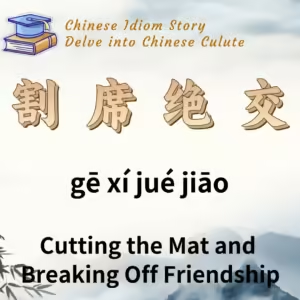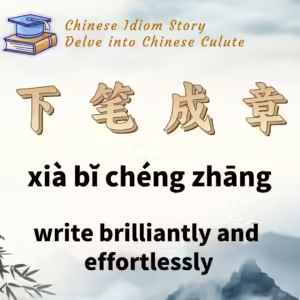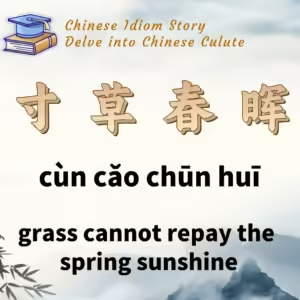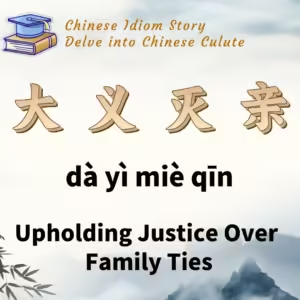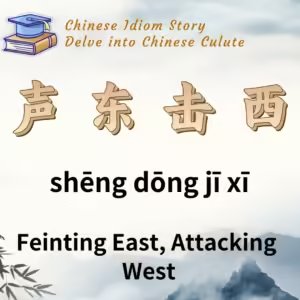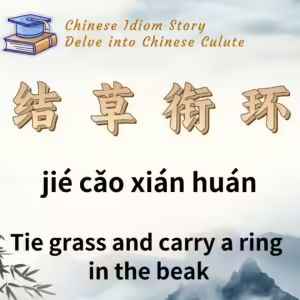
Chinese Idiom: 结草衔环 (Jie Cao Xian Huan)
English Translation: Tie grass and carry a ring in the beak
pīn yīn: jié cǎo xián huán
Idiom Meaning: This idiom describes the idea of being grateful and repaying kindness, highlighting the importance of gratitude and loyalty.
Historical Source: The idiom combines two stories from the “Zuo Zhuan” (左传) and the “Book of the Later Han” (后汉书).
Idiom Story:
The Story of Wei Wuzi: In the Spring and Autumn period, Wei Wuzi from the Jin State fell ill and instructed his son, Wei Ke, to marry off a concubine who had not given birth to a son after his death. As he became more ill, he later requested that this concubine be buried with him. After Wei Wuzi’s death, Wei Ke doubted his father’s final wishes, thinking they were the result of delirium, and decided to follow the initial instruction to marry her off. Later, while fighting against the Qin State, Wei Ke witnessed an old man tying grass into knots to entangle the horses of the Qin army, leading to his victory. That night, he dreamt of the old man, who revealed himself as the father of the married concubine, stating that he tied the grass to repay Wei Ke for not burying his daughter with Wei Wuzi.
The Story of Yang Bao: In the Eastern Han period, a boy named Yang Bao rescued an injured yellow sparrow and cared for it until it healed. After releasing it back into the wild, he dreamt that the sparrow transformed into a boy in yellow clothes, claiming to be a messenger of the Queen Mother of the West, holding four white rings in his mouth. He prophesied that Yang Bao’s descendants would be precious like the rings. This prophecy came true, as Yang Bao’s descendants, including his son Yang Zhen and grandson Yang Bing, all achieved great success.
These two stories emphasize the themes of gratitude and loyalty, leading to the formation of the idiom “结草衔环” to represent the importance of repaying kindness and expressing gratitude for the help received.

